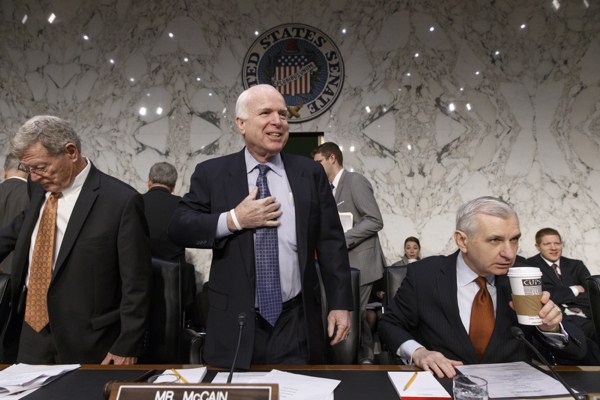When Americans think of civil-military relations, what jumps to mind is the interaction of the armed services and the executive branch of government. This relationship is central to American democracy, but also relatively straightforward. The Constitution makes the president the commander-in-chief of the military, and commissioned officers serve “at the pleasure of the president.” Officers follow the president’s orders or are fired.
Yet as Mackubin Thomas Owens points out, “Those who neglect the congressional role in American civil-military relations are missing an important element.” In many ways, this is a more complicated relationship, since it lacks the clear chain of command that defines the military’s dealings with the executive. It is particularly difficult during times of shrinking defense budgets and intense partisanship. Both of these conditions exist today, creating potentially dangerous political shoals that Congress and the military are struggling to navigate.
Shrinking defense budgets intensify competition among the military services and can tempt military leaders to seek congressional help to preserve their share of the money and save the programs they favor. But declining defense dollars can also exacerbate differences between the military and Congress over how to allocate the budget. In a time of austerity, the military emphasizes what it considers to be most important for it to perform its missions. Members of Congress are naturally concerned with the impact that the decisions of the services will have in their districts. These perspectives can clash.

